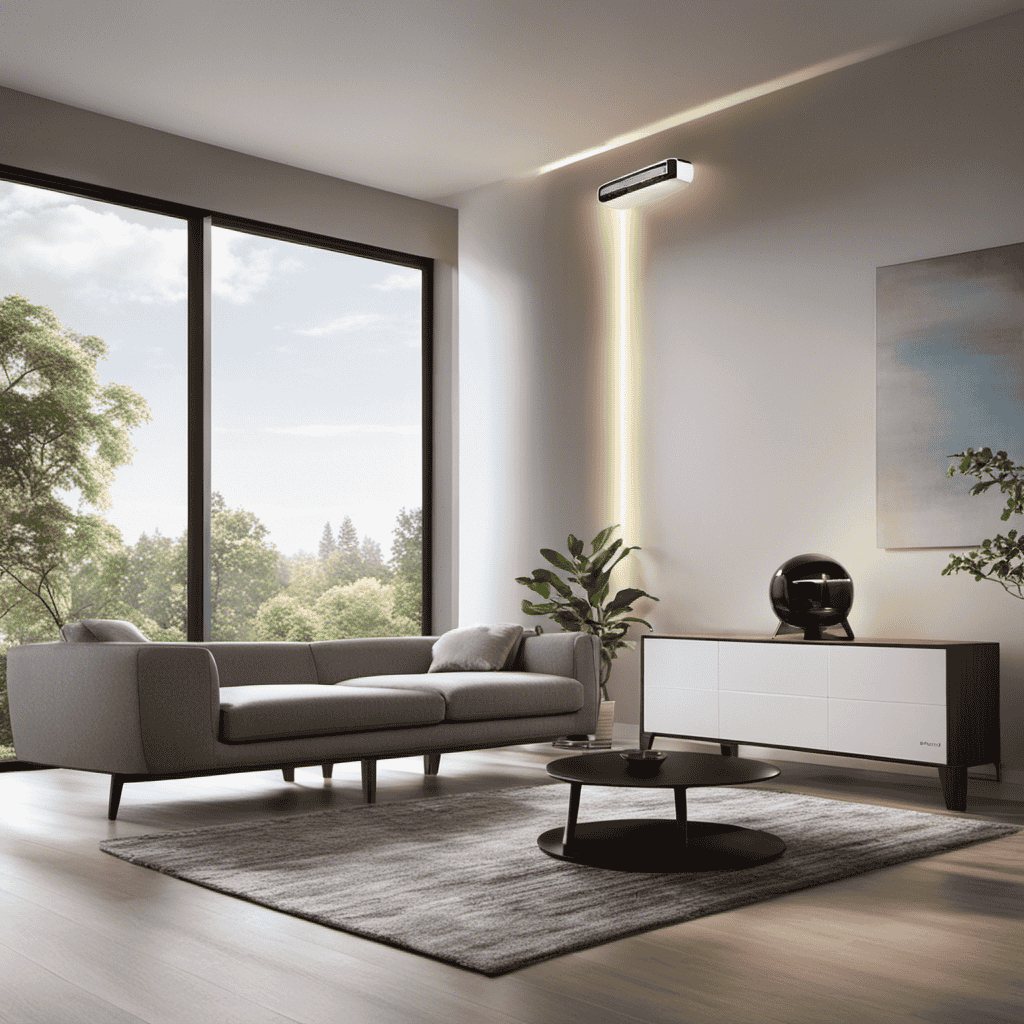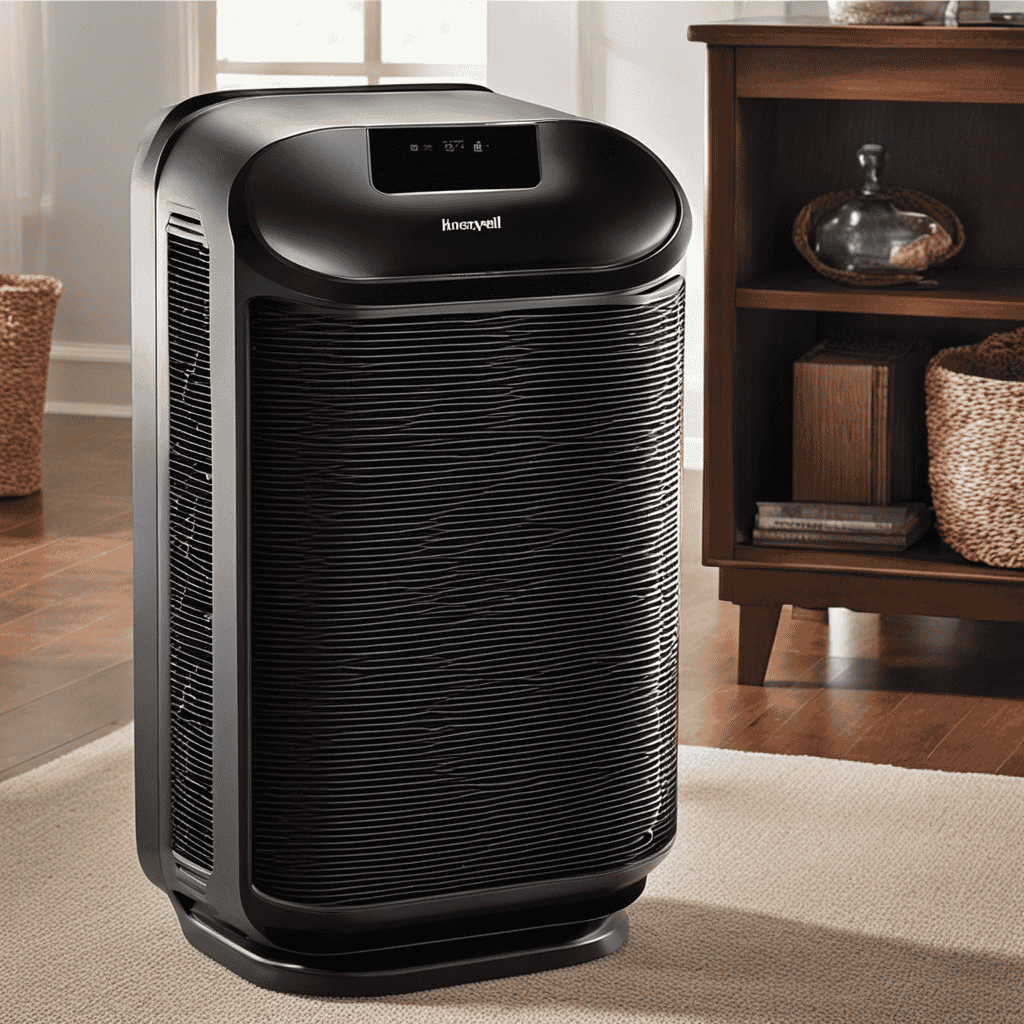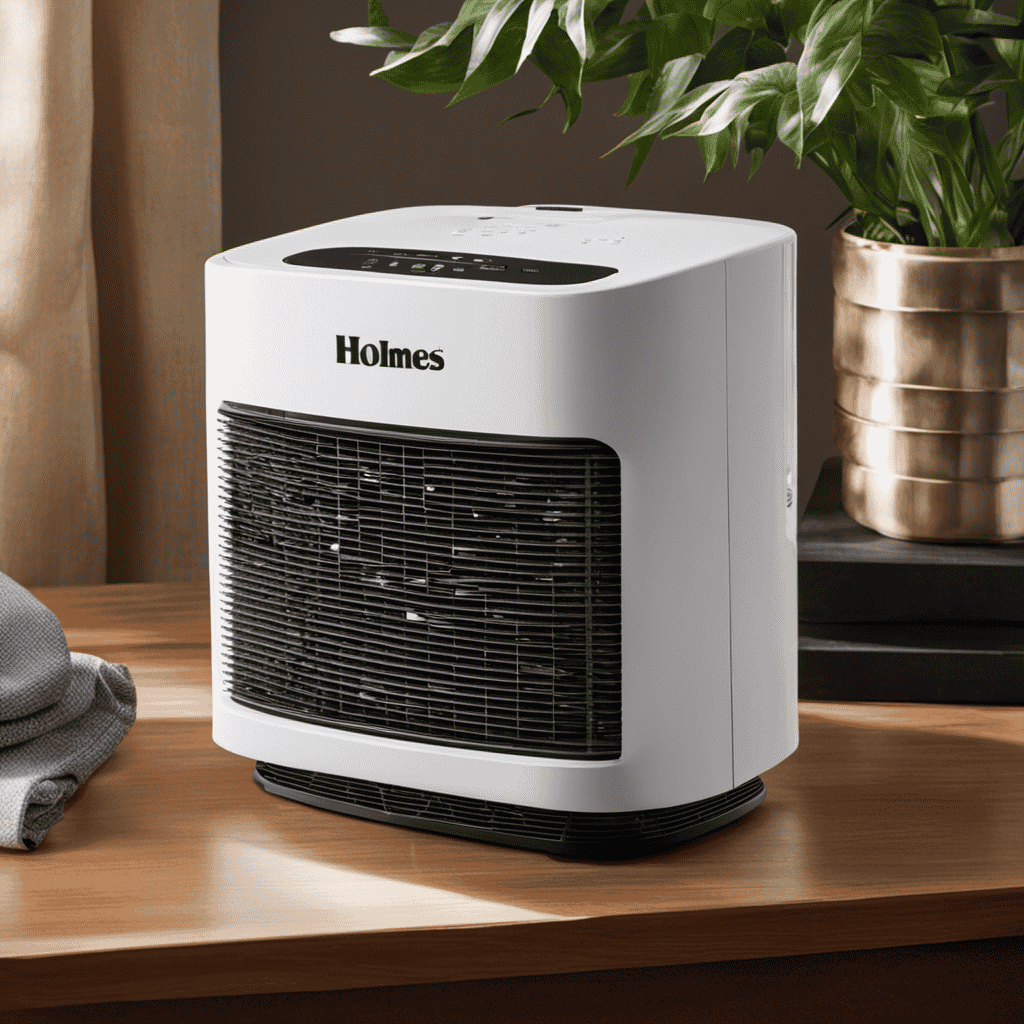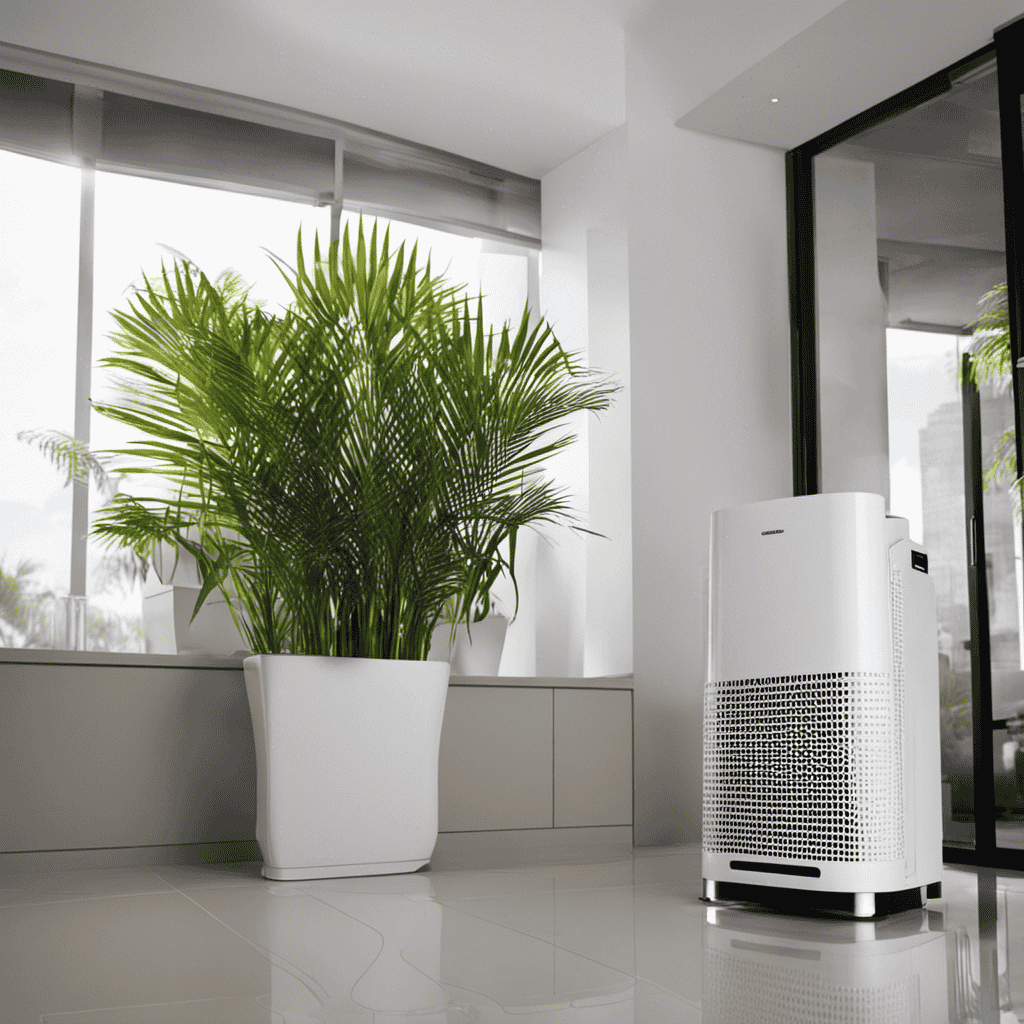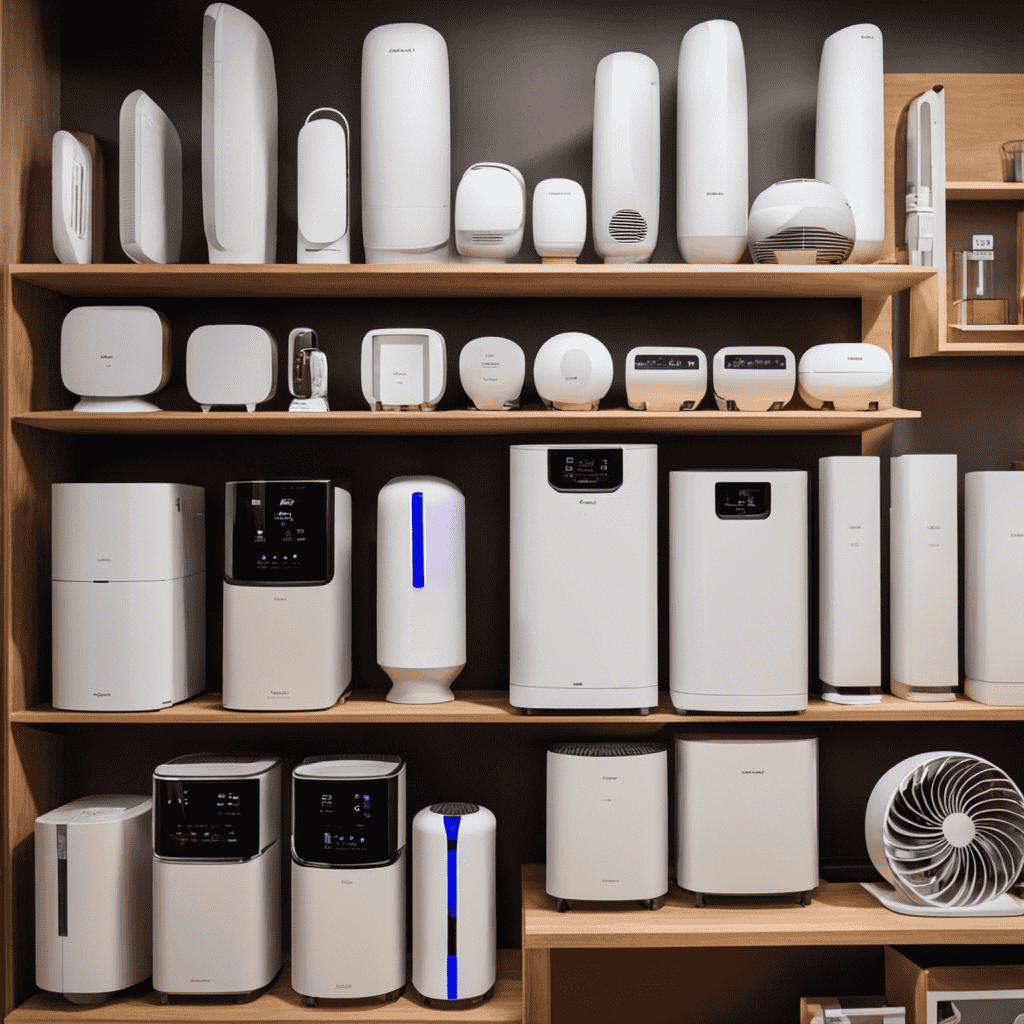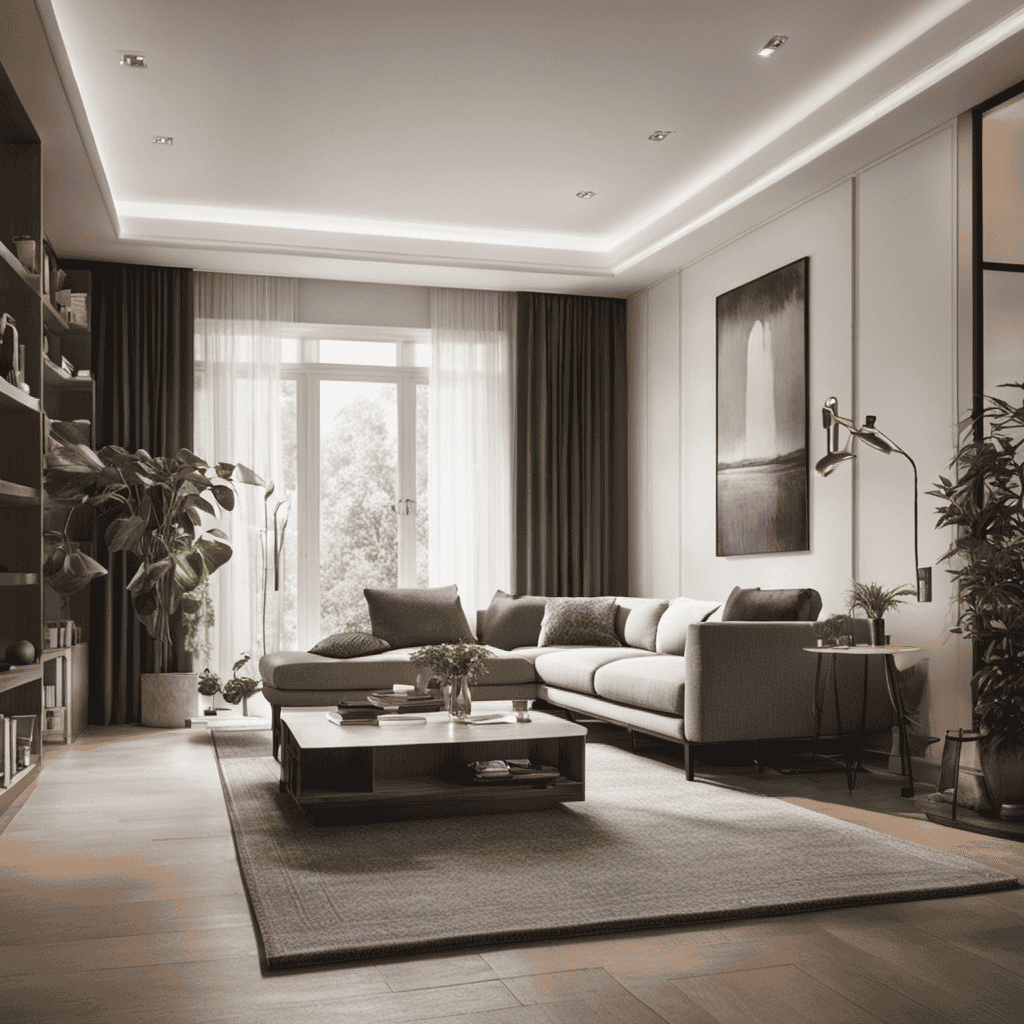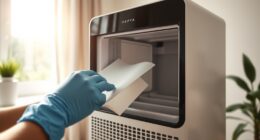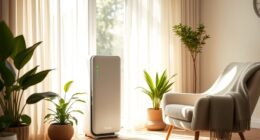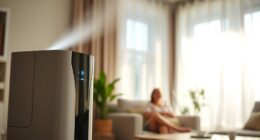As someone passionate about air quality, the query I frequently encounter is ‘Which air purifier is the right choice for me?’ This is a widespread concern, however, worry no more! Within this piece, we’re going to examine the various air purifier options on the market and cover essential factors such as allergies, the size of the space, sound intensity, types of filters, and financial plans.
So, if you’re ready to breathe in cleaner, fresher air, join me on this informative journey to find the perfect air purifier for your needs. Let’s get started!
Key Takeaways
- Consider the specific features and technologies of different air purifier brands to find the most effective option for your needs.
- For allergies and asthma, prioritize air purifiers with HEPA filters and low noise levels to capture allergens and create a peaceful environment.
- Look for air purifiers with easily replaceable filters and operate quietly, especially for use in bedrooms or offices.
- When choosing an air purifier, take into account the coverage area, room size, noise level, and energy efficiency to make an informed decision.
Different Types of Air Purifiers
When choosing an air purifier, you’ll want to consider the different types available. There are various air purifier brands and each offers different features to suit your needs.
The most common types of air purifiers include HEPA filters, activated carbon filters, and ionizers. HEPA filters are highly effective at removing small particles like dust, pollen, and pet dander. Activated carbon filters are great for eliminating odors and capturing chemicals and gases. Ionizers work by emitting negative ions that attach to airborne particles, causing them to fall to the ground.
Some air purifiers even combine multiple technologies for maximum efficiency. It’s important to research and compare different air purifier brands and their specific features to find the one that best fits your requirements and provides the cleanest air for your home.
Considerations for Allergies and Asthma
When it comes to choosing an air purifier for allergies, the type of filter you select is crucial. HEPA filters are highly effective in capturing allergens such as pollen, pet dander, and dust mites, making them a popular choice for allergy sufferers.
Additionally, for individuals with asthma, noise level is an important consideration. Opting for a quieter air purifier can help create a peaceful environment and minimize any potential triggers for asthma attacks.
Filter Types for Allergies
The best air purifier for allergies is one that uses HEPA filters. HEPA filters are highly effective at capturing airborne allergens such as pollen, dust mites, pet dander, and mold spores. When choosing an air purifier for allergies, here are some key features to consider:
-
Brand reputation: Look for well-known air purifier brands that have a proven track record of quality and performance.
-
Coverage area: Consider the size of the room or area where you plan to use the air purifier and choose one that can effectively clean the air in that space.
-
Filter replacement: Check if the air purifier’s filters are easy to replace and readily available.
-
Noise level: Look for air purifiers that operate quietly, especially if you plan to use it in your bedroom or office.
-
Additional features: Some air purifiers offer features like air quality sensors, automatic mode, and timers, which can enhance their functionality and convenience.
Now, let’s move on to the next section and discuss the importance of noise level for individuals with asthma.
Noise Level for Asthma
Asthma sufferers may benefit from choosing an air purifier with a low noise level. The impact of noise on sleep quality is a well-documented issue, and individuals with asthma are particularly susceptible to disruptions in their sleep patterns.
High levels of noise can lead to increased stress levels in asthma patients, which can in turn worsen their symptoms. Studies have shown a correlation between noise level and stress levels in individuals with asthma, with higher noise levels leading to higher stress levels.
Therefore, it is important for asthma sufferers to choose an air purifier that operates quietly, allowing them to get a good night’s sleep and reducing the potential for stress-induced asthma attacks.
Coverage Area and Room Size
To determine the right air purifier for your needs, consider the coverage area and room size. This is an important factor to consider because the effectiveness of an air purifier is directly related to its ability to effectively clean the air in a given space.
Here are some key points to consider:
-
Coverage Area: Determine the square footage of the room or area where you plan to use the air purifier. This will help you narrow down your options and find a purifier that can effectively clean the air in that specific space.
-
Room Size: Consider the size of the room in terms of height, width, and length. This will help you choose a purifier with the appropriate air circulation capabilities to effectively clean the air in the room.
-
Air Purifier Effectiveness: Look for air purifiers that are proven to be effective in removing pollutants, allergens, and other harmful particles from the air. Check for certifications or independent testing results.
-
Air Purifier Features: Consider the features that are important to you, such as the ability to remove specific allergens, the presence of a HEPA filter, or the availability of different fan speeds or modes.
-
Maintenance and Filter Replacement: Take into account the ease of maintenance and the frequency and cost of filter replacements. This will help you determine the long-term cost and convenience of owning and operating the air purifier.
Considering these factors will help you make an informed decision and choose the right air purifier that meets your specific needs and preferences.
Noise Level and Energy Efficiency
Considering the noise level and energy efficiency is crucial when selecting an air purifier. It’s important to find a balance between a quiet operation and effective performance. Some air purifier brands offer features like noise reduction technology and multiple fan speeds to cater to different preferences. Energy efficiency is also an important factor to consider, as it affects not only your electricity bill but also the environmental impact. Look for air purifiers with energy-saving modes or certifications such as Energy Star. To help you compare different air purifiers, here is a table showcasing the noise level and energy efficiency of some popular brands and their features:
| Brand | Noise Level | Energy Efficiency | Features |
|---|---|---|---|
| Brand A | Low | High | Noise reduction, energy-saving mode |
| Brand B | Medium | Medium | Multiple fan speeds, Energy Star |
| Brand C | High | Low | Turbo mode, automatic shut-off |
Considering the noise level and energy efficiency is essential in making an informed decision about which air purifier to choose. Next, let’s explore the different filter types and maintenance requirements.
Filter Types and Maintenance
When it comes to air purifiers, understanding the filter replacement frequency is crucial. Filters need to be replaced regularly to ensure optimal performance and clean air.
Additionally, comparing HEPA filters to activated carbon filters can help determine which type is best suited for specific air purification needs.
The discussion on filter replacement frequency and the differences between HEPA and activated carbon filters will shed light on important considerations for maintaining clean and healthy indoor air.
Filter Replacement Frequency
The filter in your air purifier should be replaced regularly to ensure optimal performance. Neglecting filter replacement can lead to reduced efficiency and compromised air quality. Here are some key factors to consider when determining the frequency of filter replacement:
-
Air Purifier Brands: Different brands may have different recommendations for filter replacement. It’s important to follow the guidelines provided by the manufacturer to maintain the effectiveness of the air purifier.
-
Air Purifier Features: Some air purifiers come with filter replacement indicators that notify you when it’s time to change the filter. This feature takes the guesswork out of filter replacement and ensures that you’re always breathing clean air.
-
Room Size: The size of the room and the number of pollutants present can affect the lifespan of the filter. If you have a larger room or live in a highly polluted area, you may need to replace the filter more frequently.
-
Filter Type: The type of filter you have plays a significant role in its replacement frequency. HEPA filters, for example, typically last longer than carbon filters but may still need to be replaced every 6-12 months.
-
Indoor Air Quality: If you’re experiencing poor indoor air quality or have specific respiratory conditions, it’s advisable to replace the filter more frequently to ensure that you’re breathing clean and healthy air.
HEPA Vs. Activated Carbon
HEPA filters typically last longer than activated carbon filters but may still need to be replaced every 6-12 months. When it comes to air purifier effectiveness, both types of filters play an important role.
HEPA filters are highly efficient at capturing microscopic particles like dust, pollen, and pet dander, making them ideal for people with allergies or asthma. They are also effective in removing larger particles like mold spores and some bacteria.
On the other hand, activated carbon filters excel at removing odors, smoke, and harmful gases from the air. The activated carbon works by adsorbing these pollutants, trapping them within its porous structure. This makes activated carbon filters beneficial for households with smokers or those located in areas with high levels of air pollution.
However, it’s important to note that activated carbon filters may need to be replaced more frequently than HEPA filters, depending on the level of pollutants in your environment.
Transitioning to the next section, the choice between HEPA and activated carbon filters also depends on your budget and price range.
Budget and Price Range
You should consider your budget and price range when choosing an air purifier. It’s important to find an option that fits your financial needs while still providing the air purification you desire.
Here are some factors to keep in mind:
-
Brands and warranties: Look for reputable brands that offer warranties, as this indicates their confidence in the product’s quality and durability.
-
Online vs. in-store shopping: Online shopping often provides a wider range of options and competitive prices. However, visiting a store allows you to see and test the air purifier in person before making a decision.
-
Features and specifications: Consider the specific features you need, such as filter replacement indicators, multiple fan speeds, or smart capabilities.
-
Coverage area: Determine the size of the room you want to purify and choose an air purifier that can effectively clean the air within that space.
-
Energy efficiency: Look for air purifiers with energy-saving features to minimize electricity consumption and reduce long-term costs.
Conclusion
In conclusion, when it comes to choosing the right air purifier for your needs, it’s important to consider factors such as allergies and asthma, coverage area, noise level, filter types, and budget.
Remember, ‘You get what you pay for.’ Investing in a high-quality air purifier may cost more initially, but it can provide long-term benefits for your health and well-being.
So, take the time to research and choose wisely, and enjoy the clean and fresh air in your home.
